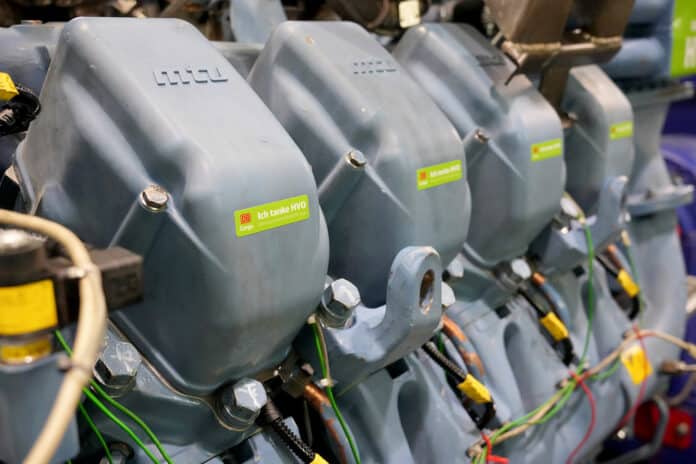Rolls-Royce has released its mtu rail engines that are meant to operate with sustainable fuels, including Hydrotreated Vegetable Oil (HVO or renewable diesel).
The HVO is a diesel-like fuel originating from many kinds of vegetable oils, such as rapeseed, sunflower, soybean, and palm oil, as well as animal fats. The benefits of HVO are clean combustion with reductions in particulate emissions of up to 80%, nitrogen oxide emissions by an average of 8%, and CO2 emissions by up to 90% compared to fossil diesel. If the fuels are produced with the help of renewable energy and green hydrogen, existing rail vehicles can be operated in a completely CO2-neutral manner.
The mtu Series 1800 engines which are used in mtu PowerPacks, as well as Series 1300 and 1500 for locomotives and multi-purpose vehicles, are already officially approved for use with synthetic fuels such as HVO. The Series 1600 and multi-purpose Series 4000 engines will follow in the near future.
DB Cargo and RDC Autozug Sylt have already tested or are currently testing mtu Series 4000 engines with HVO in their locomotives. Since mid-August 2021, DB Cargo has been conducting engine bench tests and operational trials with different locomotives powered by an 8V 4000 R41 mtu engine running on HVO. After more than 1,800 operating hours, the results are promising. And the RDC Autozug Sylt is testing out a mtu type 4000 R04 engine on a Vectron DE diesel-electric locomotive.
Following the successful completion of the tests with RDC, Rolls-Royce also intends to generally release the Series 4000 R04 engines for use with HVO and other EN15940 synthetic diesel fuels as early as 2023. RDC is already using HVO in other services since July 2022.
Rolls-Royce announced in 2021, as part of its sustainability program “Net Zero at Power Systems,” that it would realign its product portfolio so that by 2030, new fuels and mtu technologies can reduce greenhouse gas emissions by 35% compared to 2019.
